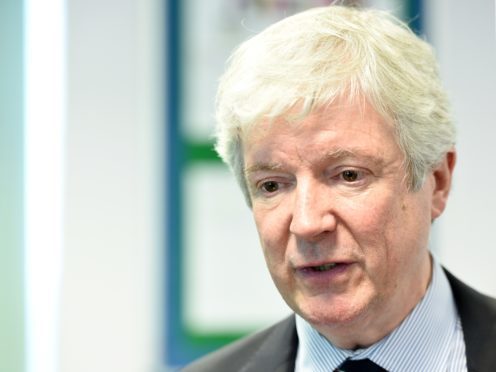British public service broadcasters are in a “David versus Goliath” fight for their future, the director general of the BBC Tony Hall is to warn.
Against a backdrop of global brands, and a media landscape becoming increasingly dominated by a handful of businesses on America’s west coast, he will say that storytelling that reflects “the lives and passions of our own square mile” is what truly appeals to audiences.
Mr Hall will set out how he believes the values of public service broadcasters matter “more than ever” in an era of persistent fake news and ahead of a post-Brexit landscape.
He will tell staff at the Television Centre on Wednesday: “Today, Netflix and Amazon are available in over half of British homes, they are services that are admired and trusted, and yet, on average, the great majority of television output viewed in the UK each day is still British content. Even among younger audiences.
“So don’t let anyone kid you that British programming no longer matters to our audiences, even younger ones.
“Instead, we know audiences in the UK are still drawn inexorably to storytelling that reflects the lives and passions of our own square mile.”
Ten years ago, around 83% of independent production companies in the UK were either UK or European-owned, the BBC said. Today, US multinationals own around 60%.
Acknowledging the BBC was “maybe” not the biggest kid on the block anymore, Mr Hall will claim that, nevertheless, “nobody is fighting harder for Britain and for our audiences”.
UK public broadcasters will be able to thrive as long as reform is sped up to keep pace with the current challenges, he will say.
The BBC’s mission must be to back young and emerging talent fervently, while it will need to change radically to remain relevant for younger audiences.
Mr Hall will say: “The country needs a BBC that helps society understand itself better … that explores our nation’s differences passionately and robustly … that projects British creativity and values globally … that reminds us every day of the things we hold in common, not just the things that divide us.
“These are not the passions of the West Coast giants – why would they be? They are our passions.”
